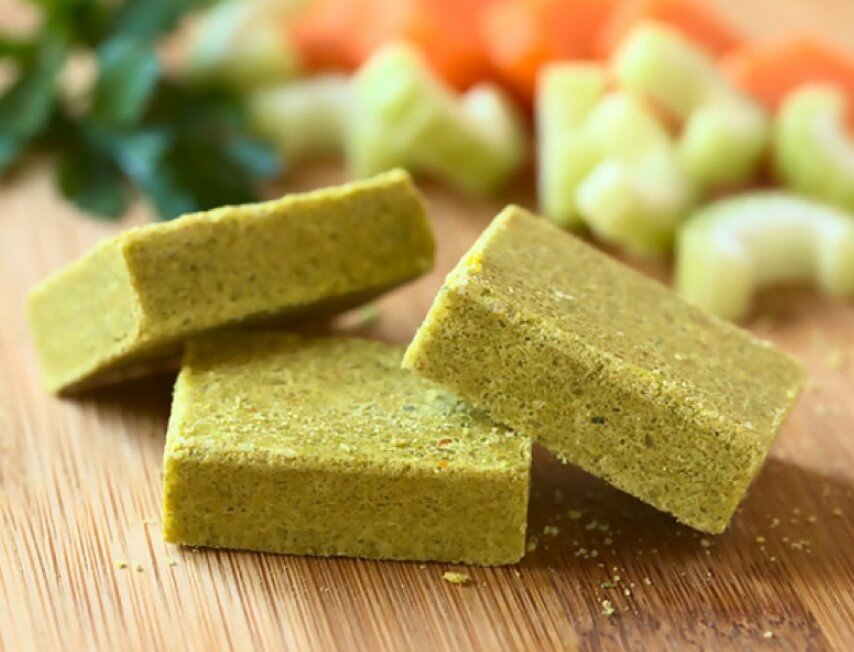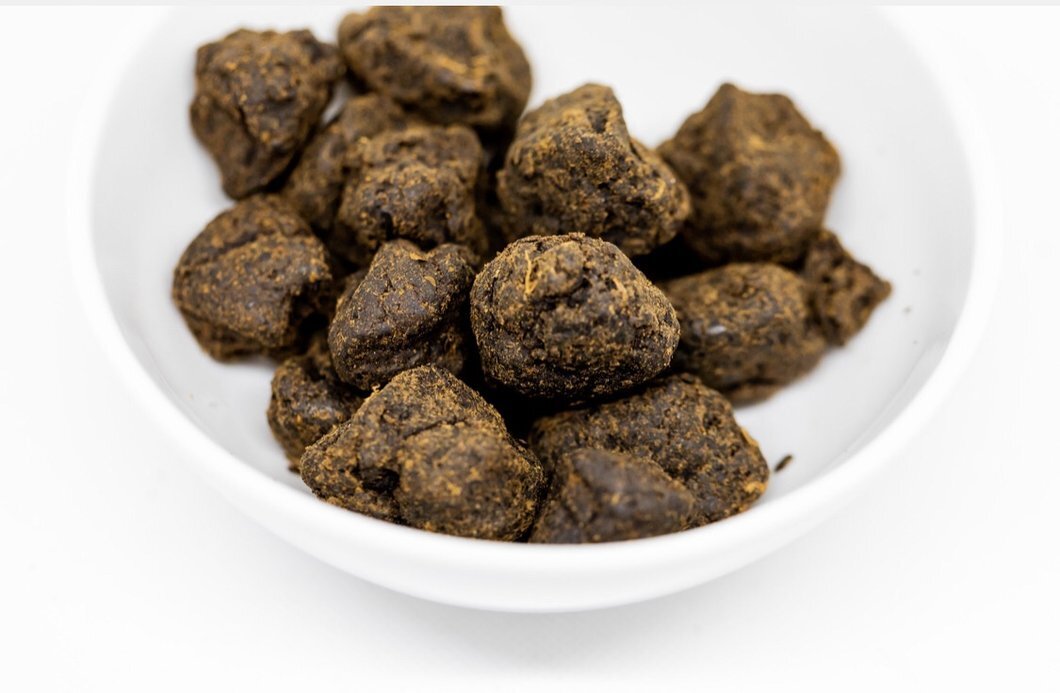Exploring Alternatives to Seasoning Cubes in Nigerian Cooking
My mother told me a story when I was younger, about one of my great-grandmother's many quirks. Mama used to hog the precious (and then expensive) seasoning cubes she got by dropping one into a pot of soup without breaking it into pieces. The sweetness of the seasoning cube would diffuse into the pot slowly, and every child in the house knew that if you found it in your plate by mistake, you had to immediately return it to the pot. She would use the same cube for multiple pots of soup until it melted completely.
Image credit: Bioanalyt
One thing this story proves is that seasoning cubes have not always been such a prominent part of Nigerian cooking. In fact, the idea for the very first one was conceived just as recently as 1869, when a Swiss businessman Julius Maggi made it his mission to find a cheap way for families to cook nourishing meals. The first bouillon cubes were made out of lentils and beans and peas ground into a fine powder. Soon, he introduced the beef broth cube that is so popular in Nigeria today.
In 1947, the acquisition of Maggi by Nestle facilitated global expansion, and they tapped into the Nigerian market where it quickly became very popular. Cooking with seasoning cubes became the pinnacle of refinement in a fast-growing, almost independent Nigeria.
In fact, my mother believes that if you can’t cook without seasoning cubes, you can’t cook, period.
Today, you’d be hard-pressed to find a Nigerian recipe that does not involve these little cubes of umami.
It's really no surprise that Nigerian food has started evolving past the dependence on seasoning cubes, with the emphasis being placed on 'natural' ingredients in food. Before them, we had local sweeteners (which my mother calls additives) which were usually harvested from plants and fermented to give food that depth of taste. In fact, my mother believes that if you can’t cook without seasoning cubes, you can’t cook, period.
If you’re curious about how it can be done, then these alternatives might just be for you.
Okpei/Ogiri/Dawadawa
Image credit: Osiafrik
With its origins in the east, this pungent ball of flavour is made from fermented oil bean seeds. Okpei and ogiri have the same origins, but the latter is made into a paste while okpei is dried into balls. There’s also a northern variety called dawadawa.
Soy sauce
This is basically the Asian ogiri but in thick liquid form. Soy sauce is made from fermented soybeans, and there are several varieties with fermented mushrooms, tofu, oysters and even grain added. I’ve noticed that when I flavour my stock with soy sauce, I rarely need seasoning cubes to add that 'sweet' taste to my food.
Iru
Image credit: Afrolems
Iru is simply fermented locust bean seeds, left to ferment as is without grinding. It’s more common in the Yoruba and Edo regions of Nigeria and has a slightly different taste from ogiri. It has a characteristic ‘seedy’ appearance in food.
Meat Stock
Seasoned cooks know that the taste of the food starts from the meat or poultry stock. To get the best stock, broil your meat or poultry on low heat with a rich variety of spices and a little water to draw out the flavour of the meat. I source soft bones from meat sellers just to make stock and freeze for cooking.
Ground crayfish
Image credit: The Market Food Shop
Crayfish has a rich flavour profile, and that’s why it’s used to add depth to soups and other Nigerian dishes. Add this to your cooking repertoire to replace MSG-based seasoning.
Spices
Image credit: Unsplash
We love our spice, and for good reason-it adds that zing that makes Nigerian cooking so good! The great thing is that you can make and store your own mixture, but if you need some pointers on what to incorporate into a spice blend, try a blend of paprika, bay leaves, black pepper, turmeric, ginger, garlic, thyme and nutmeg for seasoning meat, stews and rice.
Have you explored any alternatives to seasoning cubes in your own cooking? How has that journey been?






